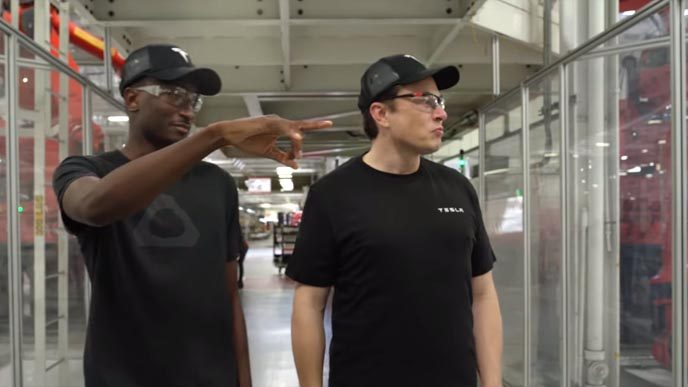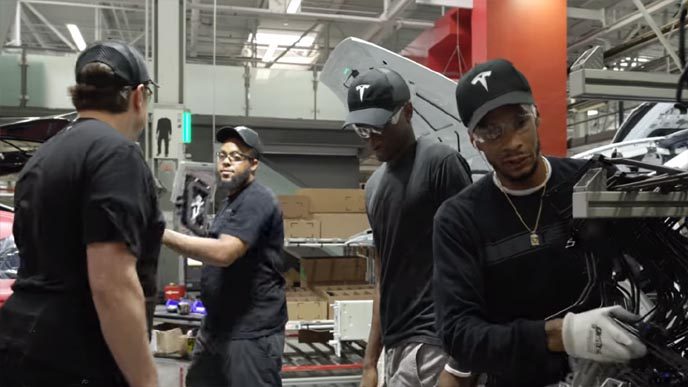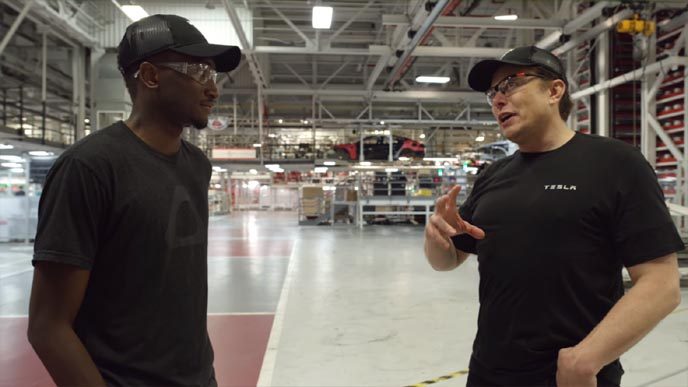Some people have said that he is a real life Tony Stark. Maybe, to a certain extent, that’s true. He is a genius, billionaire, playboy philanthropist. And while we may not all aspire to be Elon Musk, we can learn a lot from his business savvy and his penchant for success.
Hugely successful YouTuber Marques Brownlee (you might know him better simply as MKBHD) had the privileged opportunity to go on a private tour of the Tesla factory with Elon Musk a while back. This was a follow-up to an interview he conducted with the Tesla CEO at the company’s facility in Fremont where they are currently manufacturing the Model 3, the culmination of the so-called “Tesla Master Plan.”
A few subtle (or perhaps not that subtle) lessons can be gleaned from this otherwise conventional factory tour, including lessons that can be applied to your professional life as a blogger, influencer, Internet marketer and small business owner.
1. Share Openly
One of the most common questions that you’ll hear in interviews with successful people, regardless of the profession or industry where they find their success, is, “What’s your secret?”

But here’s the thing. By and large, there is no single, unified “secret” that will guarantee your success in anything. If that were the case, success would be a far simpler and more straightforward thing to attain. If the only reason why your business is thriving is because you’re holding a tightly guarded secret extra close to your chess, then it means that the long-term viability of your business is on especially shaky ground.
Once that secret gets out, your house of cards can crumble. That’s no way to build a business.
Elon Musk is, by and large, an open book. He opened up the doors to the Tesla factory in Fremont to Marques Brownlee and spoke very openly and frankly about how the whole operation works. He shares openly, because he wants everyone to benefit. It’s not about the competition; it’s about how we can create a better world for everyone. And if you just so happen to profit a few billion dollars along the way, that’s a nice side effect.
2. Respect Everyone
With an estimated net worth of over $23 billion, Elon Musk just might have every right to have an ego of gargantuan proportions. But he doesn’t. In every interview that I’ve ever seen him in, he always presents himself as passionate about what he does, but also remarkably down to Earth, humble and honest.

This is reflected in the factory tour he conducted with MKBHD. At one point in the video, he asks one of the workers on the factory floor for permission to temporarily interrupt his work. He asks if it’s okay if he goes on a video that will eventually be published on YouTube.
While the worker may certainly feel a power dynamic at play — I mean, who wouldn’t in that position? — Elon Musk appears genuine in his request. Any other billionaire boss could just as easily demand the worker to get out of the way, but Elon Musk is not like any other billionaire boss. Nobody is better than you, but you’re better than no one too.
As you continue on your journey as a blogger or online business person, treat everyone with equal respect. It doesn’t matter if you’re collaborating with the head of a multinational corporation or you’re outsourcing a small project to someone for a few bucks.
3. Pay Attention to the Details
When asked about how he would improve the manufacturing and assembly process, particularly as it pertains to Model 3 production, Elon Musk could have cited any number of potentially giant improvements. But that’s not his perspective.

Instead, he said it’s really about determining the thousands of little things that could make the process more efficient. All of these tiny, minuscule, incremental changes are what will help move the process along in a very real way. If you can shave a few seconds here, eliminate a wasted movement there, these little alterations add up.
Elon Musk says the best process is no process at all, so the key to improving efficiency (and you might apply to this to personal productivity) is to look for the little things that aren’t necessary and could be eliminated. Look for the little things that can be improved incrementally and keep striving to do better, faster, smarter.
Always keep the big picture in mind, of course, but the devil is in the details.
